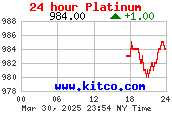畢老林
內房泡沫:十宗罪兩個views
憑《貪婪時代》(Devil Take the Hindmost )聞名遐邇的錢塞勒(Edward Chancellor),堪稱「泡沫專家」,他為經濟泡沫列出的「十宗罪」,許多似乎都適用於中國身上。
1. 瘋狂的投資行為通常由急速的經濟增長開始
2. 市場對政府管治能力存在盲目的信任
3. 資本在經濟亢奮期不計效益亂投一通
4. 貨幣供應急速增長是金融體系變得脆弱的領先指標
5. 爆炸性增長無可避免會引起很多貪污問題
6. 固定匯率制度往往令利率處於不適當的低水平,為泡沫提供養分,經濟由是大起大伏
7. 信貸到了泛濫的地步,就是危機浮現之時
8. 道德風險是投機狂熱的一大特徵,市場相信政府不會容許掌管金錢的人出軌,任由不負責任的放貸行為發生
9. 在經濟繁榮期,金融結構往往在不知不覺之間呈現不穩
10. 壞賬通常都是有抵押的貸款,而且都與房地產相關。
政府能力靠得住?
錢塞勒的名言是泡沫可以事先看見和確認,就如幾年前,大部分指標都發出美國房地產出現泡沫的警號,只是沒有太多人願意相信。
現在大家所說的中國泡沫,一般都是衝著房地產市場而來,到底內房有沒有泡沫,其實爭議不大,因為中國政府幾乎默認風險的存在。然則,中國房地產泡沫會否如美國般大爆破,變成另一場經濟災難?又或者,市場對中國政府的信任,是否盲目無理?說白一點,就是中央的執政能力,你信不信?
大摩羅奇(Stephen Roach)選擇答案A:「信」。他認為,北京政府會極力阻止資產及信貸泡沫擴散至實體經濟,與日本在上世紀八十年代要同時處理股市及房地產兩個泡沫,千頭萬緒政策紊亂,背景並不一樣。
曾與羅奇「同一屋簷下」的謝國忠選擇答案B:「不信」,繼續其慣性唱淡作風。Andy認為,中國房市泡沫由「政治驅動」,地方政府為了追求GDP增長,不惜為房地產市場推波助瀾,樓市泡沫最終會在2012年爆破。
有趣的是,當錢塞勒提到泡沬第二宗罪來自對政府的信任時,似乎忘了他講的是怎麼樣的一個政府。不是美國,不是日本,而是中國﹗聯儲局實行量化寬鬆政策,希望銀行向實體經濟拆出信貸,實情卻是絕大部分銀行還在為手上壞賬發愁,寧願水浸也不願借錢給中小企﹔反觀中央,要銀行放水多少就多少,不然如何創造去年9.6萬億元人民幣的天量新增貸款?在這個封閉的經濟體,政府不代表真理,但其強而有力的控制手腕,卻足以令任何政策立竿見影,要收要放,彈性比自由市場體系大得多,正如它有能力叫所有主業非房地產的央企撤出這個板塊;至於限制置業按揭成數,更加易如反掌。
唯一管不了的是「心」,全國十三億人口,要有和諧社會,更重要及難度更高的是管理人民的預期,諸如通脹預期、樓價預期……。中央正在一步一步出手,且看能否阻止錢塞勒的預言成真。
----------------------------------------------------------------------------------------
SCMP Monitor
The trouble with taking a long-distance perspective on China
Many in yesterday's audience - which consisted largely of locally based investors - were rather more sceptical about the mainland's apparently robust economic health.
Top of their list of worries is the financial soundness of China's 8,000-odd UDICs, or urban development investment corporations.
Akin to the ITICs - international trust and investment corporations - which wreaked such financial havoc in China a decade ago, UDICs are companies set up by local governments to circumvent restrictions on their borrowing.
Typically, local governments inject land into local UDICs, which they then use as collateral to borrow from local banks.
Over the last year these investment companies, which have also been likened to the highly leveraged special purpose vehicles set up by Western banks to shift subprime assets off their balance sheets, have run up bank debts estimated at anywhere between 8 trillion yuan (HK$9.1 trillion) and 11 trillion yuan to finance local government-sponsored infrastructure projects.
According to Victor Shih at Northwestern University in the United States, those debts could reach 24 trillion yuan by the end of this year.
The UDICs have been instrumental in ramping up mainland land prices over recent months, as rising land prices boost the value of their collateral, allowing them to borrow more.
Much of the money borrowed is then not used to fund genuine infrastructure projects, but instead is ploughed into ever more speculative property developments. But fears of a crunch are mounting as the central government moves to cool overheating in the property market.
Tighter credit conditions and falling property prices will eat into the UDICs' cash flow, eroding their debt service capability. Meanwhile, declining land prices will undermine the value of their collateral. The inevitable result will be a sharp increase in bad loan levels, especially among the local banks which have lent most lavishly to fund new projects.
Quite how big the problem will be is uncertain. Ratings agency Standard & Poor's believes bad loans could rise by as much as 2.7 trillion yuan, pushing non-performing asset levels close to 8 per cent and wiping out the capital bases of many smaller banks. Analysts at Nomura warn that in a worst case scenario 12 trillion yuan of loans could turn bad pushing non-performing asset ratios to 20 per cent and necessitating an urgent government bailout of the banking system.
Most observers believe the government's balance sheet is in a healthy enough state to cope with the resulting increase in official debt levels without too much difficulty. Even after a bailout, Beijing would have a lower debt level than most developed world governments.
But there is another problem. A banking crisis followed by a fresh bailout will further delay financial system liberalisation. At least some of the bad assets will remain on the banks' books restricting their ability to fund productive new investments. Meanwhile, both deposit and lending rates will remain regulated while credit will continue to be directed towards state sector concerns. The upshot will be inefficient capital allocation and the continued financial repression of private sector companies and ordinary consumers, making it much more difficult to rebalance the economy towards domestic consumer demand.
As a result, it is hard to see how China will be able to maintain high growth rates while boosting domestic consumption.
But then maybe you have to be an eminent professor of economics with the benefit of a long-distance perspective to understand that.
----------------------------------------------------------------------------------------
Warnings for China in a dusty old book on Japan
"The world today stands at the brink of a depression that could equal or surpass that of the 1930s. The huge US trade deficits that have powered world economic growth cannot continue. At some point the United States must run a trade surplus, which means a swing in its accounts of roughly US$400 billion. If the world economy is not to come to a grinding halt, other countries must pick up this slack. With the world's second largest economy, China is the prime candidate; hence the incessant demands from Washington that China stimulate its domestic economy."
The paragraph above sounds depressingly familiar. It could have been lifted from any number of books, position papers or newspaper commentaries on the US-China relationship written over the last couple of years.
It could have been, but it wasn't.
In fact it was written in 1988. All I've done is switch the target of the original writer's complaints from Japan into China, and double the size of the swing needed to bring the US trade balance into surplus from US$200 billion to US$400 billion.
The paragraph in question is taken from the 1988 best-seller Trading Places: how America is surrendering its future to Japan and how to win it back by former US trade negotiator Clyde Prestowitz.
But although Prestowitz's book is now more than 20 years old, its themes will be instantly recognisable to today's readers.
At the time, the US seemed destined for terminal decline, its position as the world's number one economic superpower threatened by a newly assertive Japan.
Directed by a powerful central government keen to promote strategic economic sectors and insulated from competition by protectionist barriers, Japan's corporations were rapidly hollowing out America's defenceless manufacturing industries, running up a huge trade surplus with the US in the process.
Meanwhile, with the fragility of the US model exposed by a shattering financial crisis - the Black Monday stock market crash of 1987 - Japan was fast achieving financial dominance over the US too.
Giant Japanese banks were snapping up stakes in leading Wall Street leading institutions, and the US government was becoming increasingly reliant on Japanese purchases of Treasury bonds to fund its budget deficits, prompting fears of further financial disaster should the Japanese stage a buyers' strike.
The United States look[s] ever more like a developing country. It imports high technology and capital from Japan and, aside from airplanes... exports to it mostly commodities, such as logs and soybeans, Prestowitz complained.
Before they were even half way through his book, readers were left in no doubt that the American economy was doomed, and that in the 21st century the US would be little more than a subservient colony, dominated by an increasingly prosperous and powerful Japan.
Except of course things didn't go according to Prestowitz's script. What he had interpreted as Japan's unstoppable economic rise was in fact a gigantic bubble. Within three years of the book's publication, the balloon had burst, plunging Japan into a slump it is still struggling to escape 20 years later.
2010年3月27日星期六
內房泡沫:十宗罪、Perspectives on China and Japan
訂閱:
發佈留言 (Atom)





沒有留言:
發佈留言